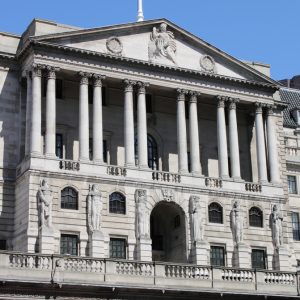
From today until Friday 14 October, the Bank of England will purchase index-linked gilts (inflation-linked IOUs), alongside its existing daily gilt purchase auctions.
A statement read: “The Bank continues to monitor developments in financial markets very closely in light of the significant asset repricing of recent weeks. It has also been working with the UK authorities to address risks to the resilience of Liability Driven Investment (LDI) funds arising from volatility in the long-dated government bond (gilt) market.
“These additional operations will act as a further backstop to restore orderly market conditions by temporarily absorbing selling of index-linked gilts in excess of market intermediation capacity. As with the conventional gilt purchase operations, these additional index-linked gilt purchases will be time-limited and fully indemnified by HM Treasury.”
The move comes just a day after the Bank doubled its bond buying daily limit to £10bn in a bid to quell fears of a pension fund sell-off, following its extraordinary intervention in the aftermath of the mini Budget.
It confirmed it “stands ready to purchase up to £10bn of gilts each day, of which up to £5bn will be allocated to long-dated conventional gilts and up to £5bn to index-linked gilts”.
The Bank added: “All purchases will be unwound in a smooth and orderly fashion once risks to market functioning are judged to have subsided”.
‘Dislocation between the Bank’s actions and investor confidence’
However, while these moves are geared towards providing stability, experts said it may add to investor woes.
Russ Mould, investment director at AJ Bell, said: “The fact the Bank of England has widened its support measures for the market by including index-linked gilts in its programme of government bond purchases will only serve to worry investors even more.
“So far, its support measures haven’t kept a lid on gilt yields as they have continued to creep up in recent sessions, thereby increasing the cost of borrowing for the government. And today’s news only triggers a very small retreat in yields.
“The Bank of England hopes to avoid a crisis in the market by being a willing buyer of bonds from pension funds who are under pressure. These pension funds will welcome today’s move, but whether the broader market shares the same enthusiasm remains to be seen.”
Mould added that the “key sticking point” is that the support measures are only scheduled to last until Friday.
“Will that be long enough, or will the Bank of England extend the support scheme? Extending it could go one of two ways – the market either applauds the move and breathes a sigh of relief or it gets even more worried, thinking that the extra time suggests the crisis is more severe than originally thought,” he added.
‘Very troubling in the medium term’
Joshua Raymond, director at online investment platform XTB, said: “With each move by the BoE to restore stability in the gilt market, the more serious market participants realise the problem facing UK financial security. Yesterday we saw the BoE double auction liquidity levels. Today they’ve widened the asset list to include index-linked gilts.
“The last few days of trading have seen long-term UK bond yields rising fast back towards levels before the BoE started to intervene. That tells you there’s a dislocation between the BoE’s actions and investor confidence. Either the market believes the BoEs actions are too small and too temporary or there’s a serious lack of confidence in UK public finances. In all likelihood, it’s probably both and that’s very troubling for the medium term.”
Following the latest intervention, the FTSE 100 fell 0.5 per cent to 6,922, dragged down by insurers and pension fund operators, miners, retailers and banks.















